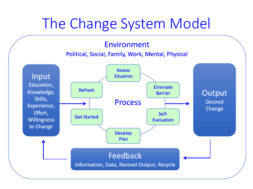
Musings of an Educational Entrepreneur
By Benjamin Franklin
This column gives education leaders the opportunity to discuss higher education issues. For more information contact Jenny Faubert at 920-264-0199 or jfaubert@careereducationreview.net.
Ben Franklin here!
In my day, when the brave colonists stood up to the king and sought to escape from the oppressive and despotic acts of the government, the redcoats were sent to stifle the dissent. The march of the king’s troops from Boston to Lexington to suppress the colonists’ activities in defiance of the crown demonstrated the crown’s disdain for the people of Massachusetts.
Now in these modern times, antagonists to the for-profit sector have lifted a new banner under which to march – the nonprofit conversion. The current iteration of this long battle against the for-profit sector has its roots in California during the late 1980’ but recently has begun to focus on the nonprofit conversion undertaken by a small number of institutions. During the last decade, these “consumer” activists, along with the traditional higher education sector, were able to convince the Obama administration to significantly clamp down on the activities of for-profit institutions, especially publicly traded ones. The department, with the urging of these liberal groups, advanced egregious regulations (intolerable acts) which would have made the operations of the for-profit sector costlier, if not impossible, in certain career areas.
It is important to recognize that most for-profit institutions serve a different market than the traditional liberal arts/public universities.
Most for-profit schools serve adult learners, not students graduating in the current high school class. Adult learners are for the most part not actively recruited by traditional higher educational institutions, even though they represent over 50 percent of active college students. Yet the constant government attacks, plus the coordinated negative publicity from media, have forced some of the more sophisticated and established institutions to seek shelter in the nonprofit sector. These uber liberal activists feel cheated that institutions using a change of corporate status could have escaped the regulations they fought so hard to get the Obama Department of Education to adopt.
For-profits institutions converting to not-for-profit corporations is nothing new. As schools have matured, many have realized that not-for-profit status potentially provides for long-term stability and other advantages. Johnson and Wales, Southern New Hampshire University, Baker College, Davenport College and many others have, for various reasons, changed their corporate structure and governance to the benefit of their students and the higher education community. Owners of these colleges either donated or sold the assets of their institution to the communities in which they served, usually at great sacrifice. Just like the King’s suppression of the Patriots, these tunnel vision educational activities do not realize the ultimate benefit to the society. Universities continue to provide an enormous positive long-term impact to the stakeholders in their communities.
Uber liberals see these status changes as a shell game for the benefit of the owners of for-profit companies. Nothing could be farther from the truth! In most cases, the transfer of assets to independent boards of trustees has been a significant cost to the owners — each of these transactions, whether a family-owned institution or a publicly traded one, was made for a variety of reasons. Most of the family-owned schools that changed to nonprofit did so to protect the legacy of the institution under threat by negative publicity and underhanded tactics of consumer advocates. Some were regionally accredited schools that for the most part had independent boards of trustees and operated with not-for-profit governance structures. Some had upper-level programs of study students in master’s and doctoral level programs being impacted by discriminatory regulations.
Whatever the reason, these schools responded appropriately in order to protect their graduates and students.
Schools which had programs like Culinary Arts, Photography, and other creative programs were endangered by the restrictive and abusive gainful employment regulations. Schools that taught these programs were forced to change their governance structure or their mission and student body. In any case, the change was an expensive and difficult decision caused by several factors including the oppressive governmental regulation.
The battle of Lexington occurred after the colonial leaders adopted the Suffolk Resolves in answer to the heavy-handed British colonial governments response to the Boston Tea Party. In that battle, eight militiamen were killed while the redcoats suffered only one casualty. However, it was the first battle of the Revolutionary War, ultimately won by the colonists, in which many Tories and Colonists lost their lives. Like the modern battle between the consumerists and schools, there have been many loses. The nonprofit colleges and universities transitions, made in response to the consumer activists and Obama administration’s unfair treatment, like the American revolution, will result in a positive outcome for both the students and the communities these institutions serve.






